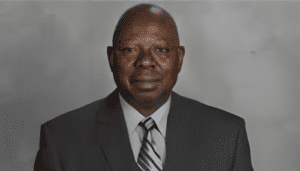Anambra governorship election: A post mortem
The peaceful conduct of the Nov. 6, Anambra governorship election has proved that democracy has come to stay in the country.
Prior to the election, there were threats by the proscribed Indigenous People of Biafra (IPOB) that the election would not hold.
There were also attacks on offices and equipment of the Independent National Electoral Commission (INEC) in the South-East few months to the election, resulting to calls to suspend the election.
But the Federal Government stood its ground and ensured the election took place as scheduled in spite of the threats by IPOB.
To ensure smooth conduct, two Deputy Inspectors-General of Police, five Assistant Inspectors-General of Police and 14 Commissioners of Police were deployed to Anambra by the Inspector- General of Police, Mr Usman Alkali.
About 34, 587 policemen were also deployed for the election, in addition to other security agents and the military.
Although the election experienced a little delay due to some technical hiccups, it was nevertheless, a successful exercise.
Some observers have however, noted that the hiccups witnessed in the election had to do with the problem of logistics by the Independent National Electoral Commission (INEC).
Some believed that a number of voters were at the polling units ready to vote for their candidates only to be turned back due to logistics problems or failure of the voting technology adopted by INEC.
Prof. Jibrin Ibrahim, Senior Fellow, Centre for Democracy and Development (CDD), who commented on the issue, advised INEC to address hiccups associated with the use of Bimodal Voter Accreditation System (BVAS), in subsequent elections.
Ibrahim said that since technology was key to the electoral process, INEC must strive hard to get it right.
“INEC has to improve on technology and deployment skills, you cannot keep having these hitches each time you are deploying a new technology,’’ he said.
Dr Sam Amadi, CDD election analyst, said that the CDD deployed some observers to monitor the election and got findings on late arrival of election materials and poll officials.
Amadi said that poor welfare for security personnel, slow pace of transmission of results to the INEC Results Viewing portal (IREV) and fake news were some of the things observed.
“The reported malfunction of the BVAS in most polling units has raised concerns about the reliability of the device; CDD believes that the intention behind the introduction of the BVAS is laudable.
“As was experienced with the card reader at the initial stage, we are confident that INEC will seek solutions to the identified challenges with the device.
“However, INEC must take immediate measures to enhance the infrastructure behind the technology and ensure adequate training for ad-hoc staff on the efficient use of the device,” he said.
Mrs Ruth Olofin, Acting Executive Director, Cleen Foundation, a non-governmental organisation, who spoke on the Anambra election, urged INEC to improve on the Bimodal Voter Accreditation System (BVAS) and other logistics.
Olofin said that the improvement was necessary to ensure a more transparent and credible elections in future.
She said that there was also a need for INEC to improve on its result portal to ensure transparency and accountability.
Olofin said that in spite the improvements observed in the election, there were still hitches that disrupted parts of the electoral process.
“In view of the observations during the election, we recommend the following to deepen the democratic process and improve election security management in the country and ahead of future off-cycle elections.
“INEC should improve on its logistics and operational processes associated with the BVAS in order to deliver more transparent and credible elections.
“INEC should conduct more awareness of the BVAS machines to sensitise voters in future elections.
“And the commission should train and retrain electoral officers and ad-hoc staff to enable them meet up with the changing needs of the elections in the country,” she said.
Olofin also urged the INEC to make provisions for inclusive electoral process in respect of Persons with Disabilities (PWDs), such as provision of braille for voters with visual impairment and other disability friendly and assistive devices.
The commission, she said, should dialogue with key stakeholders including traditional and religious leaders to encourage the electorate to turn out to vote and participate in electoral processes in future elections.
According to her, off-cycle elections in the country had of recent been characterised by low turn-out of voters.
Mr Samson Itodo, Executive Director, Yiaga Africa, on his part, advised INEC to undertake a thorough audit of the BVAS.
Itodo said the audit would help to forestall future breakdown of the technology and enhance transparency.
“Yiaga Africa expresses concern with INEC’s framework for adopting new electoral technologies, as the BVAS, though a valuable tool for electoral integrity, fell short of expectations during the Nov. 6 governorship election.
“BVAS malfunctioned and slowed down the process, resulting in long queues and extended waiting time for voters.
“Some voters were discouraged from voting due to the malfunctioning BVAS.
“INEC should undertake an audit of the BVAS and ensure all the technological glitches with the device are resolved.’’
Chief Sunny-Neville Uchendu, an All Progressives Grand Alliance (APGA) chieftain, who spoke on the Anambra election, said that President Muhammadu Buhari exhibited uncommon attributes of a statesmanship in the conduct of the Nov. 6 governorship election.
Uchendu was reacting to the declaration of Prof. Chukwuma Soludo of APGA, as the winner of the governorship election.
Uchendu, the Deputy Director, Diaspora Outreach of Prof. Chukwuma Soludo 2021 Campaign Organisation, said it was remarkable that Buhari as a member of the ruling All Progressives Congress (APC) did not show an sign of partisanship in spite of his party fielding a candidate in the election.
“What is more remarkable is that some people were dropping the name of Mr President as their joker in the Anambra election.
“But for Soludo to have won the election shows that many people with sinister motives have been spoiling the good name of our president, without him getting involved in their negative activities,” he said.
Uchendu, popularly known as Mayor of Atlanta, commended both INEC and security agencies for their roles in making the exercise peaceful.
He said though the introduction of the BVAS used in the election had some issues, he maintained that the commission should improve on some flaws noticed.
“The new BVAS device is good because it made it difficult and disappointed people banking on rigging.
“But I believe that INEC should make sure that the ad-hoc workers operating the devices should be properly trained as they exhibited poor handling of the device,” he said.
Dr Ben Nwankwo, a chieftain of APGA advised INEC to improve on its technology and logistics in order to ensure credible general election in 2023.
Nwankwo, a former member of the House of Representatives, who represented Orumba North and South Federal Constituency, said that INEC must strive hard to adopt a faster technology to ensure credible poll in the future.
“INEC must strive hard to ensure that it adopt a faster technology to ensure smooth conduct of future elections especially the 2023 poll,” he said.
“Nigeria by now should have been classified as a developed country, but we are taking steps backwards.
“The election will have been one of the best in recent times and everybody will have been commending INEC for that.
“The security arrangement was wonderful, there was no breakdown of law and order to the best of my knowledge.
“But the sad news is that the technology failed to work by not being rapid that culminated in waste of time, people coming out not getting accreditation at the right time,” he said.
Nwankwo said that the procedure adopted for the election was commendable.
“The procedure will have been wonderful because it was accreditation, vote and go, that will have looked like what is obtainable in developed countries of the world.
“But the technology was on trial and being on trial, I think its effectiveness was around 30 per cent. I don’t know why it failed to work, whether it was network issue or something else. It may be bandwidth issue or something else.
“May be it was heavy traffic that caused the network not to work.
“INEC should be improving, it should not be going back and front,” he said.
Nwankwo said that the budgetary provision for INEC was enough to guarantee credible elections.
“The budgetary provision for INEC is sufficient to guarantee credible and fair election. Nigeria in the 21st century should be able to organise a hitch free and credible poll.
“The election environment was okay, security was fantastic, because I didn’t hear stories of stealing of ballot boxes and didn’t hear about any fight.
“The number of security personnel deployed was equally commendable.
“But the efficiency of the voting system seemed to have left much to be deserved,” he said.
INEC should redress the short comings in subsequent elections, he stressed.




